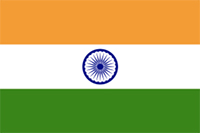

 印度
印度 印度→班加罗尔→瑜伽游学
印度→班加罗尔→瑜伽游学1、辨喜简介:
辨喜或译斯瓦米·韦委卡南达(1863年~1902年7月4日),是印度近代哲学家,社会活动家,印度教改革家。原名兰特拉纳特·达塔(Narendranath Datta),法号辨喜。他生于加尔各答,属刹帝利种姓。
1883年毕业于加尔各答省立学院,翌年进入加尔各答市立学院攻读法律。大学毕业后,奉事印度教改革家罗摩克里希那,决心献身于印度的宗教和社会改革活动。1893年出席了在美国芝加哥召开的世界宗教会议,途中曾访问中国广州等地。会后,他到美国和欧洲各地旅行,宣讲印度吠檀多哲学,颇受西方学术界重视。1897年回国,同年在加尔各答建立以他老师命名的"罗摩克里希那传教会"。1899年又在喜马拉雅山麓创立旨在宣传和研究印度吠檀多哲学的"不二论书院"。1902年7月4日病逝,年仅39岁。
宗教思想
辨喜的宗教改革思想与其哲学思想是密不可分的。他追随老师罗摩克里希那,主张以印度教为基础建立一个新的宗教──"人类宗教"。在他看来,世界上各种宗教虽然采取的形式不同,但本质和目的是一致的,都是要达到与上帝的交往,实现普遍之爱。
他创立"罗摩克里希那传教会"的宗旨就是宣传和促进印度各种宗教之间的友谊,实现"人类宗教"的理想。在社会改革方面,他号召印度各个民族、宗教和种姓在印度精神的基础上联合起来,打破宗教对立和种姓隔离,改善劳动群众的物质环境,普及教育和文化,发展民族工商业,提高妇女权利,清除印度与世界的隔绝,希望在印度教的精神基础上建立一个西方资产阶级的民主社会。他的社会政治理论对以后印度民族解放运动的开展曾产生过重要作用。
主要着作
辨喜的哲学着作有《业瑜伽》、《王瑜伽》、《信瑜伽》、《智瑜伽》、《吠檀多哲学》、《理性与宗教》等。
辨喜已经被翻译成中文的着作有:《现在开始练习瑜伽》(中国华侨出版社2008年出版)《胜王瑜伽:禅定之道》(中国华侨出版社2009年出版,本书即辨喜着名的《王瑜伽》一书。
2.学校简介
现任校长
HR Nagendra博士是印度班加罗尔辨喜瑜伽大学的的校长,也是学院的灵魂人物,博士毕业于班加罗尔印度工程科技学院机械工程专业,加拿大大不列颠哥伦比亚大学机械工程专业博士后。曾经担任美国航天局的科研人员,最终放弃了舒适的物质生活,回到印度,之后开始了长达十年的瑜伽之旅。1986年,他创建了辨喜瑜伽大学。
印度辨喜瑜伽大学,英文缩写为SVYASA,是Vivekananda Yoga Anusandhana Samsthana的简称。学院成立于1986年。辨喜瑜伽大学是印度政府批准成立的唯一一所提供瑜伽理疗,并研究瑜伽科学和医疗效果的顶尖研究机构,是一家非营利的科研与教育机构。该大学涵盖从瑜伽本科、瑜伽硕士到瑜伽博士学位的瑜伽教育和研究的学科。
占地面积约700亩。学院环境优雅,学术氛围浓厚,成为来自世界各地瑜伽人的修练之地。学院汇集了印度最具声望的瑜伽大师,是印度传统瑜伽科学向世界传播的圣地。印度大部分的瑜伽大师或毕业于此间学院,或在这里执教,或在这里开展学术研究
建校初衷是致力于将瑜伽作为一种社会相关科学来进行研究。Swami Vivekananda的教学基于四种瑜伽流派的多样性而进行有效的统一结合。印度文化的关键精髓瑜伽,它能给全球的人民带去健康、和谐、和平,目前己遍面全球30多个国家与地区。VYASA的使命是结合东方(瑜伽和精神传说)和西方(现代科学研究)的最佳瑜伽成果,而将其应用于瑜伽短期或长期课程的课堂上,该课程在印度的四所大学,其中包括班加罗尔大学有授。于二零零二年UGC将学校更名为S-VYASA,同时升级为一所大学。S-VYASA是Swami Vivekananda Yoga Anusandhana Samsthana 的首写字母缩写形式,它是印度唯一的一所专门的瑜伽大学,也是第一个ISO 2001:2008认证瑜伽大学。
瑜伽研究和瑜伽疗法 是 S-VYASA已经投入运行的两个瑜伽领域!
多年来,S-VYASA通过研究证实了瑜伽的科学性。我们已经成功发表了284篇研究论文,全部收录在PubMed / Medline或Psychlit / Psychinfo中。S-VYASA已经成为印度医学研究委员会(ICMR)认可的瑜伽和神经生理学高级研究中心(CAR)。
S-VYASA还得到了独一无二的瑜伽治疗研究健康之家的支持,该健康之家是一个由VYASA运营的称为Arogyadhama run且拥有250个床位的治疗设施机构。这基本上被设想为预防和治疗现代非传染性疾病,长期康复和促进正向健康的机构。
在S-VYASA大学提供设计精良的瑜伽课程,现在我们有114个博士,51个医学学位和410多名学生在各分支机构。迄今为止,我们已经培养了25位博士和21位医学博士。
S-VYASA和VYASA距班加罗尔市中心30公里。校园叫Prashanti Kutiram被称为和平居所。坐落在绿树丛生的大自然中,校园面积超过100多英亩。校园距离丰富的Bannerughatta国家公园约14公里。
S-VYASA拥有一个完美的瑜伽图书馆,收藏了15000本书,视频和书籍。数字图书馆拥有数千种在线期刊。SVYP(Swami Vivekananda Yoga Prakashan)是S-VYASA发行的。我们有大约35个书刊,视频和音频。
S-VYASA多年来对CM(Cyclic Meditation),PET(Pranic Energisation Technique),PETR(Mind Sound Resonance Technique),MEMT(Mastering the Emotions Technique),MIRT(Mind Imagery Technique) ,VISAK(Vijnana Sadhana Kausala)和ANAMS(Anandamrita Sincana)进行了标准化。
IJOY or International Journal of Yoga在其四年多的时间里越来越受到欢迎,在PubMed获得了第二的排名。在IJOY网站上,可以自由阅读整套研究论文。我们希望能把这个期刊作为一个平台,汇集所有有关瑜伽的良好实验研究!IJOY-PPP是IJOY的另一个维度,意思是要在哲学,超心理学和心理学这三个领域发掘我们的印度教圣典Shastras的隐藏维度。
3.课程介绍
Division of Yoga – Spirituality
Vision:
To make spirituality as a socially relevant science
Mission:
To combine philosophical understanding of Spirituality with the modern scientific advancement to unearth the science behind Indian traditional practices and performances, directed towards research and application
Objectives:
To train the aspirants, inner researchers, spiritual counselors with knowledge base by imparting through theory and practical classes
To make the campus spiritually congenial for self growth and to express the hidden potentials for practice and promotion of spirituality
5 Skill oriented courses are offered by the Division
1.Spiritual Counseling
2.Veda Chanting and Daily rituals
3.Astrology for Health, Happiness and Harmony
4.Traditional Knowledge and skills for harmonious living (Vastu)
5.Yajna – a healing science
Syllabus for Skill oriented Courses
Skill oriented courses Yoga -Spirituality
Under Graduate Program:
B.Sc. (Yoga and Consciousness)
Post Graduate Program:
M.Sc. (Yoga and Consciousness)
Doctoral Program:
PhD(Yoga)
The University will permit the registration for Ph.D. in the following Divisions, namely,
1. Division of Yoga and Spirituality
2. Division of Yoga and Humanities
3. Division of Yoga and Physical Sciences
4. Division of Yoga and Life Sciences
5. Division of Yoga and Management
Inter-Disciplinary Subject Areas:
A candidate is allowed to pursue Ph.D. program in a subject area of inter-disciplinary nature subject to the approval from Research Advisory Committee.
1. The credit for Ph.D. course work shall be a minimum of 08 credits and a maximum of 16 credits.
2. The course work shall comprise of one course on Research Methodology and other courses shall be advanced level courses, duly approved by the Academic Council, preparing the students for Ph.D. degree as recommended by the Research Advisory Committee.
3. The Division where the scholar pursues his/her research shall prescribe the course(s) to him/her based on the recommendations of the Research Advisory Committee.
4. All candidates admitted to the Ph.D. programme shall be required to complete the course work prescribed by the Division within one year from the date of registration.
5. Grades in the course work, including research methodology courses shall be finalized after a combined assessment by the Research Advisory Committee and the Division and the final grades shall be communicated to the candidate.
6. A Ph.D. scholar has to obtain a minimum of 55% of marks in the course work in order to be eligible to continue in the programme and submit the dissertation/thesis.
7. A Ph.D. scholar shall complete the entire coursework within two years from the date of registration or a maximum of four consecutive coursework examinations conducted by the University from the date of registration.
8. Candidates failing to fulfill the above requirements are liable to get their registration automatically cancelled and no further extension/coursework examinations will be permissible for completing the coursework. Such candidates are free to apply for registration for Ph.D. afresh.Progress Monitoring:
1. A research scholar shall appear before the Research Advisory Committee once in six months to make a presentation of the progress of his/her work for evaluation and further guidance. The six monthly progress reports shall be submitted by the Research Advisory Committee to the university with a copy to the research supervisor.
2. In case the progress of the research scholar is unsatisfactory, the Research Advisory Committee shall record the reasons for the same and suggest corrective measures. If the research scholar fails to implement these corrective measures, the Research Advisory Committee may recommend to the University, with specific reasons, for cancellation of the registration of the research scholar.
3. If the Ph.D. research scholar fails to submit the two consecutive progress reports or abstains from presentation of progress report, the RAC may recommend for cancellation of the registration of the research scholar.
4. If the research scholar fails to complete the entire Ph. D. work up to submission of thesis within the stipulated period, the registration of the research scholar shall be cancelled as per the regulations.
10. Evaluation and Assessment Methods
Course work:
1. The setting of question paper and evaluation shall be carried out by two examiners, selected from an approved panel of examiners, possessing Ph D degree in the relevant field, appointed by the Controller of Examinations.
2. If the difference between the marks awarded by the two examiners is less than or equal to 14%, the marks awarded to the candidate shall be the average of the two valuations.
3. If the difference between the marks awarded by the two examiners is greater than or equal to 15%, a third examiner shall evaluate the concerned answer script(s). The average of the marks of the nearest two valuations shall be considered as the marks secured by the candidate. However, if one of the three evaluations lays exactly midway between the other two, then the higher two marks shall be taken for averaging.
4. The candidate shall score minimum passing marks of 50% in each subject.
Division of Yoga & Life Sciences
Vision:
To develop a holistic system of health care through integration of best of the east with best of the west
Mission:
To integrate holistic ancient systems of medicine with modern medicine through evidence based research and teaching for better health of the mankind
Objectives:
To prevent ailments and promote Positive health
To effectively treat diseases the holistic way
To bring out normalization through long-term rehabilitation
To evolve diagnostic tools using modern technology and ancient insights.
To create Health care professionals and paramedical persons with holistic vision, clinical knowledge and skills
Research to understand and promote integration of ancient sciences of healing with modern medicine.
5 Skill oriented courses are offered by the Division
1) Naturopathic Massage
2) Hypnosis
3) Natural way of living
4) Yogic counselling
5) Yoga way of total body purification
Syllabus for Skill oriented Courses – > Skill Oriented Courses by Life Science Division
Under Graduate Programs:
BSc (Yoga therapy)
Syllabus BSc YT
BNYS (Bachelor of Naturopathy and Yogic Sciences)
Syllabus
Post Graduate Programmes:
MSc (Yoga therapy)
Syllabus for MSc (Yoga Therapy)
PGDYT – Post-Graduate Diploma in Yoga Therapy
PGDYTD – Post- Graduate Diploma in Yoga Therapy for Doctors
MD (Yoga)
Syllabus of MD (Y&R)
Doctoral Programmes:
PhD (Yoga)
The University will permit the registration for Ph.D. in the following Divisions, namely,
1. Division of Yoga and Spirituality
2. Division of Yoga and Humanities
3. Division of Yoga and Physical Sciences
4. Division of Yoga and Life Sciences
5. Division of Yoga and Management
Inter-Disciplinary Subject Areas:
A candidate is allowed to pursue Ph.D. program in a subject area of inter-disciplinary nature subject to the approval from Research Advisory Committee.
The credit for Ph.D. course work shall be a minimum of 08 credits and a maximum of 16 credits.
2. The course work shall comprise of one course on Research Methodology and other courses shall be advanced level courses, duly approved by the Academic Council, preparing the students for Ph.D. degree as recommended by the Research Advisory Committee.
3. The Division where the scholar pursues his/her research shall prescribe the course(s) to him/her based on the recommendations of the Research Advisory Committee.
4. All candidates admitted to the Ph.D. programme shall be required to complete the course work prescribed by the Division within one year from the date of registration.
5. Grades in the course work, including research methodology courses shall be finalized after a combined assessment by the Research Advisory Committee and the Division and the final grades shall be communicated to the candidate.
6. A Ph.D. scholar has to obtain a minimum of 55% of marks in the course work in order to be eligible to continue in the programme and submit the dissertation/thesis.
7. A Ph.D. scholar shall complete the entire coursework within two years from the date of registration or a maximum of four consecutive coursework examinations conducted by the University from the date of registration.
8. Candidates failing to fulfill the above requirements are liable to get their registration automatically cancelled and no further extension/coursework examinations will be permissible for completing the coursework. Such candidates are free to apply for registration for Ph.D. afresh.Progress Monitoring:
1. A research scholar shall appear before the Research Advisory Committee once in six months to make a presentation of the progress of his/her work for evaluation and further guidance. The six monthly progress reports shall be submitted by the Research Advisory Committee to the university with a copy to the research supervisor.
2. In case the progress of the research scholar is unsatisfactory, the Research Advisory Committee shall record the reasons for the same and suggest corrective measures. If the research scholar fails to implement these corrective measures, the Research Advisory Committee may recommend to the University, with specific reasons, for cancellation of the registration of the research scholar.
3. If the Ph.D. research scholar fails to submit the two consecutive progress reports or abstains from presentation of progress report, the RAC may recommend for cancellation of the registration of the research scholar.
4. If the research scholar fails to complete the entire Ph. D. work up to submission of thesis within the stipulated period, the registration of the research scholar shall be cancelled as per the regulations.
10. Evaluation and Assessment Methods
Course work:
1. The setting of question paper and evaluation shall be carried out by two examiners, selected from an approved panel of examiners, possessing Ph D degree in the relevant field, appointed by the Controller of Examinations.
2. If the difference between the marks awarded by the two examiners is less than or equal to 14%, the marks awarded to the candidate shall be the average of the two valuations.
3. If the difference between the marks awarded by the two examiners is greater than or equal to 15%, a third examiner shall evaluate the concerned answer script(s). The average of the marks of the nearest two valuations shall be considered as the marks secured by the candidate. However, if one of the three evaluations lays exactly midway between the other two, then the higher two marks shall be taken for averaging.
4. The candidate shall score minimum passing marks of 50% in each subject.
Division of Yoga & Physical Sciences
Vision:
Matter based paradigm to consciousness based paradigm through Yoga
Mission:
Facilitating the needs of consciousness based research, knowledge dissemination, and application
Objectives:
To introduce new paradigms of investigating consciousness field
To support with new tools for investigating consciousness based paradigm
To promote bio-energy based assessments in clinical setups
To develop strategies to disseminate knowledge through course curriculum
To pursue synergizing subtle energy, nuclear energy, and bio-energy
5 Skill oriented courses are offered by the Division –
1. Programming in R,
2. Programming in Java,
3. Subtle Energy Assessments,
4. Vedic mathematics,
6. Qualitative Research Methods.
Syllabus for Skill oriented Courses -> Skill Oriented Courses by Physical Science
PhD (Yoga)
The University will permit the registration for Ph.D. in the following Divisions, namely,
1. Division of Yoga and Spirituality
2. Division of Yoga and Humanities
3. Division of Yoga and Physical Sciences
4. Division of Yoga and Life Sciences
5. Division of Yoga and Management
Inter-Disciplinary Subject Areas:
A candidate is allowed to pursue Ph.D. program in a subject area of inter-disciplinary nature subject to the approval from Research Advisory Committee.
The credit for Ph.D. course work shall be a minimum of 08 credits and a maximum of 16 credits.
2. The course work shall comprise of one course on Research Methodology and other courses shall be advanced level courses, duly approved by the Academic Council, preparing the students for Ph.D. degree as recommended by the Research Advisory Committee.
3. The Division where the scholar pursues his/her research shall prescribe the course(s) to him/her based on the recommendations of the Research Advisory Committee.
4. All candidates admitted to the Ph.D. programme shall be required to complete the course work prescribed by the Division within one year from the date of registration.
5. Grades in the course work, including research methodology courses shall be finalized after a combined assessment by the Research Advisory Committee and the Division and the final grades shall be communicated to the candidate.
6. A Ph.D. scholar has to obtain a minimum of 55% of marks in the course work in order to be eligible to continue in the programme and submit the dissertation/thesis.
7. A Ph.D. scholar shall complete the entire coursework within two years from the date of registration or a maximum of four consecutive coursework examinations conducted by the University from the date of registration.
8. Candidates failing to fulfill the above requirements are liable to get their registration automatically cancelled and no further extension/coursework examinations will be permissible for completing the coursework. Such candidates are free to apply for registration for Ph.D. afresh.Progress Monitoring:
1. A research scholar shall appear before the Research Advisory Committee once in six months to make a presentation of the progress of his/her work for evaluation and further guidance. The six monthly progress reports shall be submitted by the Research Advisory Committee to the university with a copy to the research supervisor.
2. In case the progress of the research scholar is unsatisfactory, the Research Advisory Committee shall record the reasons for the same and suggest corrective measures. If the research scholar fails to implement these corrective measures, the Research Advisory Committee may recommend to the University, with specific reasons, for cancellation of the registration of the research scholar.
3. If the Ph.D. research scholar fails to submit the two consecutive progress reports or abstains from presentation of progress report, the RAC may recommend for cancellation of the registration of the research scholar.
4. If the research scholar fails to complete the entire Ph. D. work up to submission of thesis within the stipulated period, the registration of the research scholar shall be cancelled as per the regulations.
10. Evaluation and Assessment Methods
Course work:
1. The setting of question paper and evaluation shall be carried out by two examiners, selected from an approved panel of examiners, possessing Ph D degree in the relevant field, appointed by the Controller of Examinations.
2. If the difference between the marks awarded by the two examiners is less than or equal to 14%, the marks awarded to the candidate shall be the average of the two valuations.
3. If the difference between the marks awarded by the two examiners is greater than or equal to 15%, a third examiner shall evaluate the concerned answer script(s). The average of the marks of the nearest two valuations shall be considered as the marks secured by the candidate. However, if one of the three evaluations lays exactly midway between the other two, then the higher two marks shall be taken for averaging.
4. The candidate shall score minimum passing marks of 50% in each subject.
Division of Yoga & Management Studies
Vision:
To promote Holistic Approach of Management for individual, institutional and social prosperity and harmony
Mission:
To blend management principles as propounded in Indian Scriptures with modern management systems through research education and training
Objectives:
To develop human resource well grounded in “Holistic management System” based on personal, social and universal well being.
To develop leaders of tomorrow who can create wealthy organizations and healthy society through innovative, inclusive and outcome based learning principles.
To create a network of empowered individuals and institutions to herald a new paradigm in management.
Salient Features:
Holistic System of Management (HOLSYM) is evolved in division by combining best of the Western Science and Technology with best of Eastern Philosophy.
Corporate training programmes provide adequate exposure to Business world.
Teaching methodologies are learner centric and emphasizes on all round total personality development which is periodically measured and reported using scientific methods for each student.
We organise all academic and extra – curriculum activity for developing managerial skills of 21stcentury.
Innovative teaching and learning methods like case studies, desk research, group discussions etc.
Indian Ethos of management practiced from ancient wisdom base of Indian scripture s for Self growth.
Unique students from our division are true change agents for organisational development and contributors to development of society.
Extension Activities:
Corporate Training Programmes – SMET
Corporate Spiritual Responsibility (CSpR)
Event Management
Cultural Activities
Conferences and Seminars
Social Awareness Programmes
Future plans:
Academic:
Short Term Courses
Long Term Courses
Certificate Courses
Online Education
Skill Development Programmes
Projects:
Management Consultancy
Corporate Mentoring Programmes
Joint Venture Project Works
Management Journal on Yoga
Establishing Yoga Centers in Corporate.
Students Development Programmes.
Following programmes are offered by Division of Yoga and Management Studies
5 Skill oriented courses are offered by the Division –
1. Managerial Communications Skills
2. Information Technology Skills
3. Self Management of Excessive Tension
4. Decision Making Skills
5. Leadership Skills
Syllabus for Skill oriented Courses ->Skill oriented courses by Yoga and Management Studies
MBA (People and Organisation Management)
Eligibility: 10+2/PUC, UG with 50 % marks.
Duration : 2 year full time course
Maximum Credits: 100
Syllabus : MBA Programme Curriculum Booklet
Ph.D. (Yoga)
The University will permit the registration for Ph.D. in the following Divisions, namely,
1. Division of Yoga and Spirituality
2. Division of Yoga and Humanities
3. Division of Yoga and Physical Sciences
4. Division of Yoga and Life Sciences
5. Division of Yoga and Management
Inter-Disciplinary Subject Areas:
A candidate is allowed to pursue Ph.D. program in a subject area of inter-disciplinary nature subject to the approval from Research Advisory Committee.
The credit for Ph.D. course work shall be a minimum of 08 credits and a maximum of 16 credits.
2. The course work shall comprise of one course on Research Methodology and other courses shall be advanced level courses, duly approved by the Academic Council, preparing the students for Ph.D. degree as recommended by the Research Advisory Committee.
3. The Division where the scholar pursues his/her research shall prescribe the course(s) to him/her based on the recommendations of the Research Advisory Committee.
4. All candidates admitted to the Ph.D. programme shall be required to complete the course work prescribed by the Division within one year from the date of registration.
5. Grades in the course work, including research methodology courses shall be finalized after a combined assessment by the Research Advisory Committee and the Division and the final grades shall be communicated to the candidate.
6. A Ph.D. scholar has to obtain a minimum of 55% of marks in the course work in order to be eligible to continue in the programme and submit the dissertation/thesis.
7. A Ph.D. scholar shall complete the entire coursework within two years from the date of registration or a maximum of four consecutive coursework examinations conducted by the University from the date of registration.
8. Candidates failing to fulfill the above requirements are liable to get their registration automatically cancelled and no further extension/coursework examinations will be permissible for completing the coursework. Such candidates are free to apply for registration for Ph.D. afresh.Progress Monitoring:
1. A research scholar shall appear before the Research Advisory Committee once in six months to make a presentation of the progress of his/her work for evaluation and further guidance. The six monthly progress reports shall be submitted by the Research Advisory Committee to the university with a copy to the research supervisor.
2. In case the progress of the research scholar is unsatisfactory, the Research Advisory Committee shall record the reasons for the same and suggest corrective measures. If the research scholar fails to implement these corrective measures, the Research Advisory Committee may recommend to the University, with specific reasons, for cancellation of the registration of the research scholar.
3. If the Ph.D. research scholar fails to submit the two consecutive progress reports or abstains from presentation of progress report, the RAC may recommend for cancellation of the registration of the research scholar.
4. If the research scholar fails to complete the entire Ph. D. work up to submission of thesis within the stipulated period, the registration of the research scholar shall be cancelled as per the regulations.
10. Evaluation and Assessment Methods
Course work:
1. The setting of question paper and evaluation shall be carried out by two examiners, selected from an approved panel of examiners, possessing Ph D degree in the relevant field, appointed by the Controller of Examinations.
2. If the difference between the marks awarded by the two examiners is less than or equal to 14%, the marks awarded to the candidate shall be the average of the two valuations.
3. If the difference between the marks awarded by the two examiners is greater than or equal to 15%, a third examiner shall evaluate the concerned answer script(s). The average of the marks of the nearest two valuations shall be considered as the marks secured by the candidate. However, if one of the three evaluations lays exactly midway between the other two, then the higher two marks shall be taken for averaging.
4. The candidate shall score minimum passing marks of 50% in each subject.
Division of Yoga & Humanities
Vision:
To revive the traditional way of value system through education; to promote depth-ecology and evolve measures of harmony and ecology globally; to build ideal social orders and to bring values in social life.
Mission:
To bring in the holistic vision and tools of Yogic lore in the fields of literature, sports, arts, music, dance, history, anthropology and astrology
Objectives:
To bring in the holistic vision and tools of Yoga, which helps to enhance the all round. personality of the student at physical, mental, emotional and spiritual levels.
Harmonize value system featured by love, co-operation, bliss and health.
Gain mastery over physical stamina and reduce ego and develop self-confidence.
To give free vent to pent up emotions and culture them.
5 Skill oriented courses are offered by the Division –
Carnatic music vocal level-1
Carnatic music vocal level-2
Carnatic music instrumental (flute) basic level
Percussion training course with Mrindangam basic level
Natya yoga – Bharatanatyam basic education and training.
Syllabus for Skill oriented Courses -> Skill oriented Courses by Yoga and humanities
PhD (Yoga)
The University will permit the registration for Ph.D. in the following Divisions, namely,
1. Division of Yoga and Spirituality
2. Division of Yoga and Humanities
3. Division of Yoga and Physical Sciences
4. Division of Yoga and Life Sciences
5. Division of Yoga and Management
Inter-Disciplinary Subject Areas:
A candidate is allowed to pursue Ph.D. program in a subject area of inter-disciplinary nature subject to the approval from Research Advisory Committee.
The credit for Ph.D. course work shall be a minimum of 08 credits and a maximum of 16 credits.
2. The course work shall comprise of one course on Research Methodology and other courses shall be advanced level courses, duly approved by the Academic Council, preparing the students for Ph.D. degree as recommended by the Research Advisory Committee.
3. The Division where the scholar pursues his/her research shall prescribe the course(s) to him/her based on the recommendations of the Research Advisory Committee.
4. All candidates admitted to the Ph.D. programme shall be required to complete the course work prescribed by the Division within one year from the date of registration.
5. Grades in the course work, including research methodology courses shall be finalized after a combined assessment by the Research Advisory Committee and the Division and the final grades shall be communicated to the candidate.
6. A Ph.D. scholar has to obtain a minimum of 55% of marks in the course work in order to be eligible to continue in the programme and submit the dissertation/thesis.
7. A Ph.D. scholar shall complete the entire coursework within two years from the date of registration or a maximum of four consecutive coursework examinations conducted by the University from the date of registration.
8. Candidates failing to fulfill the above requirements are liable to get their registration automatically cancelled and no further extension/coursework examinations will be permissible for completing the coursework. Such candidates are free to apply for registration for Ph.D. afresh.Progress Monitoring:
1. A research scholar shall appear before the Research Advisory Committee once in six months to make a presentation of the progress of his/her work for evaluation and further guidance. The six monthly progress reports shall be submitted by the Research Advisory Committee to the university with a copy to the research supervisor.
2. In case the progress of the research scholar is unsatisfactory, the Research Advisory Committee shall record the reasons for the same and suggest corrective measures. If the research scholar fails to implement these corrective measures, the Research Advisory Committee may recommend to the University, with specific reasons, for cancellation of the registration of the research scholar.
3. If the Ph.D. research scholar fails to submit the two consecutive progress reports or abstains from presentation of progress report, the RAC may recommend for cancellation of the registration of the research scholar.
4. If the research scholar fails to complete the entire Ph. D. work up to submission of thesis within the stipulated period, the registration of the research scholar shall be cancelled as per the regulations.
10. Evaluation and Assessment Methods
Course work:
1. The setting of question paper and evaluation shall be carried out by two examiners, selected from an approved panel of examiners, possessing Ph D degree in the relevant field, appointed by the Controller of Examinations.
2. If the difference between the marks awarded by the two examiners is less than or equal to 14%, the marks awarded to the candidate shall be the average of the two valuations.
3. If the difference between the marks awarded by the two examiners is greater than or equal to 15%, a third examiner shall evaluate the concerned answer script(s). The average of the marks of the nearest two valuations shall be considered as the marks secured by the candidate. However, if one of the three evaluations lays exactly midway between the other two, then the higher two marks shall be taken for averaging.
4. The candidate shall score minimum passing marks of 50% in each subject.
4.图片中心
微信:13958049299 微信:yxlg999
QQ:2211954525 QQ:2219092737
电话:13197842895
报名流程:
咨询相关事宜——申请学位缴纳定金——收到录取通知书——办理签证——预定机票——行程说明会/出发准备——缴纳尾款——出发学习
 Yan老师
Yan老师 Meng老师
Meng老师 Judy老师
Judy老师 Linda老师
Linda老师 Ying老师
Ying老师 Kevin老师
Kevin老师 Copyright 2020-2030 www.studyingtours.com All Rights Reserved
Copyright 2020-2030 www.studyingtours.com All Rights Reserved



